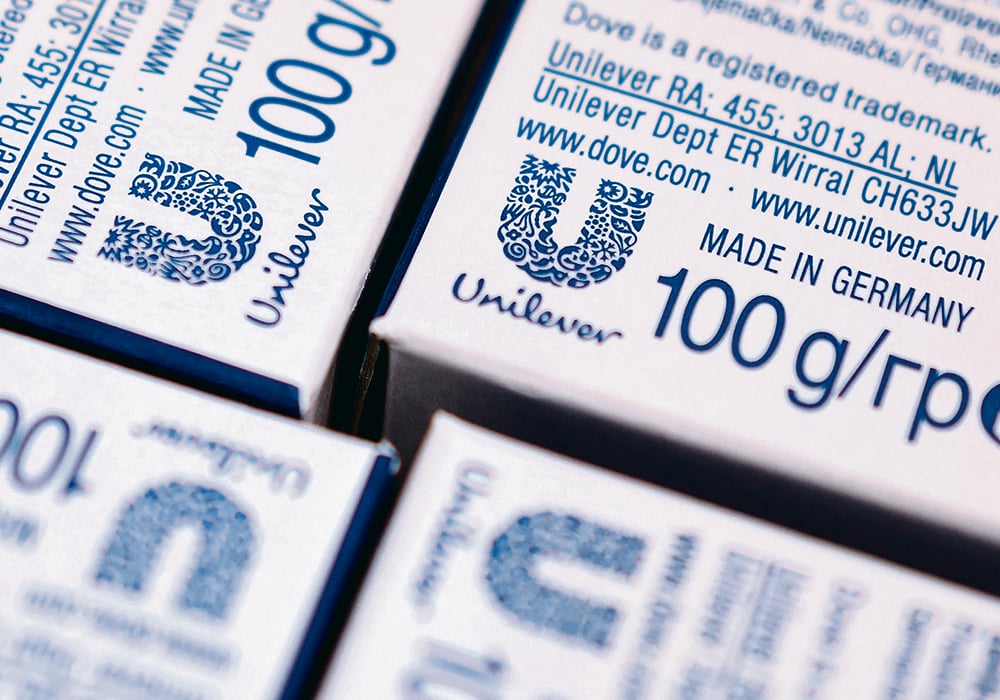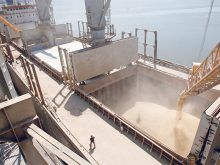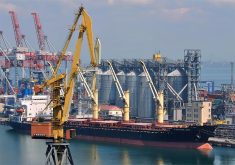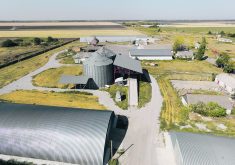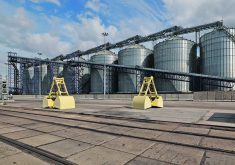LONDON (Reuters) — Unilever raised its full-year sales guidance after beating first-half underlying sales forecasts as the maker of Dove soap and Knorr stock cubes hiked prices to counter soaring costs. The move lifted its shares on July 26.
One of the biggest consumer companies in the world, with more than 400 brands ranging from detergent to ice cream, Unilever’s costs have surged since the start of the COVID-19 pandemic created global supply chain logjams.
War in Ukraine has since boosted energy costs and sent prices of raw materials such as wheat, sunflower oil and pulp used in packaging to record highs. Unilever said it sees net material inflation at about US$4.6 billion this year, including a $2.6 billion hit in the second half.
Read Also

Canadian Food Inspection Agency extends chronic wasting disease control program consultation deadline
Date extended for consultation period of changes to CWD program
Unilever’s first-half operating profit margin fell to 17 percent from 18.8 percent a year earlier, even as Unilever raised prices by 9.8 percent.
The price hikes come despite retailer push-back against consumer product suppliers, as they worried about ceding margins and alienating shoppers.
Walmart, the world’s biggest retailer, on July 25 slashed its profit forecast as surging prices for food and fuel prompted customers to cut back on spending.
“We did see their news this morning, but I think there are many, many aspects to that don’t fully connect with Unilever,” the British firm’s chief financial officer Graeme Pitkethly said on a call with journalists. He said Walmart’s announcement was related more to general merchandise and clothing, and that inflation would vary by region.
“We expect peak inflation to come in the second half of the year. I don’t think we’ll be able to catch up in the current quarter,” he added.
Andy Searle, a partner at consultancy Alix Partners, predicted no return to a low inflation environment.
We’re going to be stuck in this environment for a significant amount of time,” he said.
Unilever this year made room on its board for activist investor Nelson Peltz, whose Trian investment vehicle had built up a 1.5 percent stake as of June.
Peltz “is making a very constructive contribution as a board member,” CEO Alan Jope said on a call with journalists, but he declined to elaborate.
Underlying sales grew 8.1 percent, beating analyst expectations of 7.2 percent growth, according to a company-provided consensus for the half to June 30.
Unilever said it now expects to beat its previous forecast for full-year underlying sales growth of 4.5 to 6.5 percent.
Bernstein analysts in a note described the results as “good,” with pricing better than expected and volumes in line, boding well for the company’s ability to keep investing in growth.
Investors cheered the results. Unilever shares rose almost 3.2 percent at their high.
“Underlying sales growth of 8.1 percent was driven by strong pricing to mitigate input cost inflation, which, as expected, had some impact on volume,” Jope said. “The challenges of inflation persist and the global macroeconomic outlook is uncertain.”
Its half-year turnover rose 14.9 percent to $30 billion even as sales volumes declined by 1.6 percent.
Pitkethly said Unilever raised spending on advertising and branded marketing by $202 million in the first half to prevent shoppers from trading down to private label products.
Unilever, which owns Vermont-based Ben & Jerry’s, has struggled over the past year to keep the ice cream maker’s independent board from publicly voicing its opinions about political matters.
This month, Ben & Jerry’s sued Unilever to block the sale of its Israeli business to a local licensee, saying it was inconsistent with its values to sell its ice cream in the occupied West Bank.

